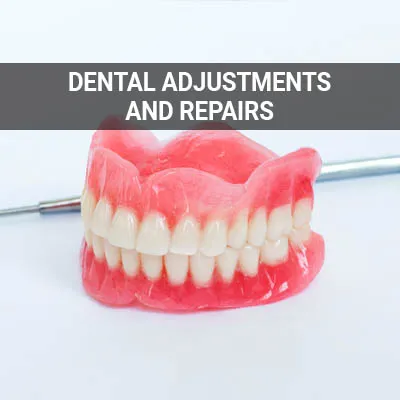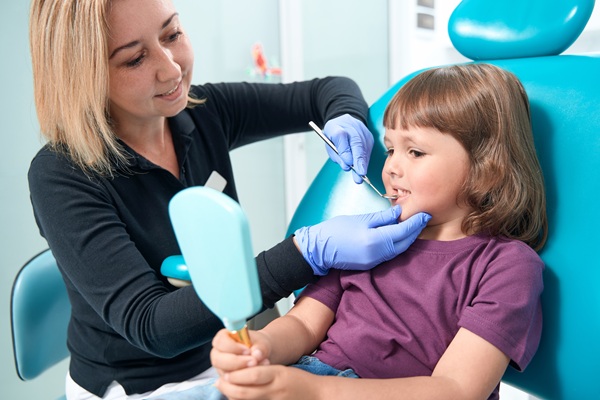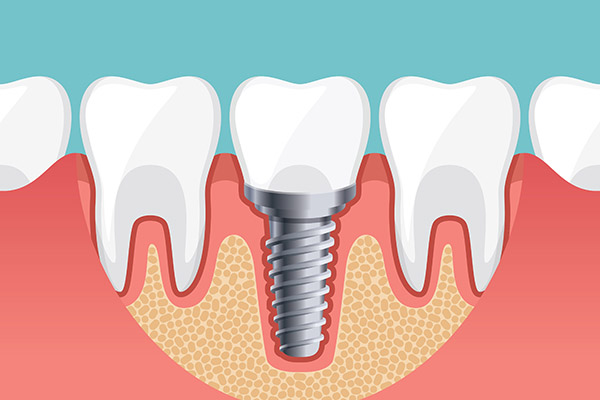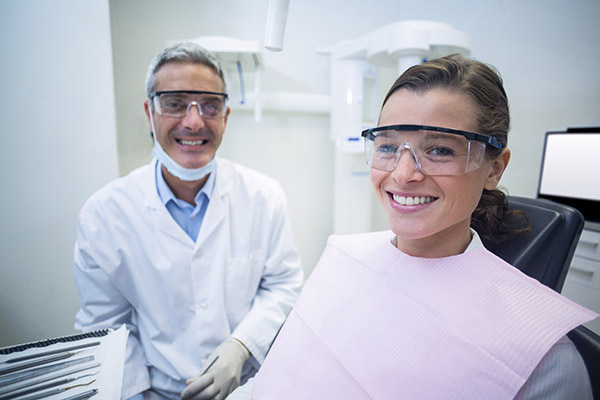Solutions for Common Denture Problems San Jose, CA
Dentures are more comfortable and helpful than ever before. However, there are still some common problems that many denture wearers experience. Proper denture care and diet can help keep the gums and mouth healthy and avoid irritation or infections.
Dentures are available at Blossom Dental Excellence in San Jose and the surrounding area. Our team can provide you with solutions and tips to correct common denture problems. Call us at (408) 444-9984 to learn more about our services or schedule an appointment.
How To Eat While Wearing Dentures
Dentures provide only a fraction of the biting and chewing power compared to healthy natural teeth. With that in mind, eating while wearing dentures takes some practice and adjusting. As the patient practices, it is critical to consider the following:
- Start with soft foods: We do not recommend eating hard or sticky foods when wearing dentures. When first getting dentures, it is good to start with soft foods, such as applesauce and pudding. After getting the hang of eating and swallowing with dentures, it is time to move on to soft foods that require a little chewing, like scrambled eggs.
- Chew on both sides: Taking small bites and chewing equal amounts on both sides of the mouth at the same time helps keep the dentures balanced.
- Check temperatures before eating or drinking: Dentures have an insulating effect on the mouth. Consequently, as explained by the U.S. National Library of Medicine, it may be difficult to judge food temperature. As such, patients should use their lips to check food and beverage temperature.
- Be patient: These issues should resolve as one gets used to all the sensations associated with a new set of dentures.
Furthermore, to prevent toothache, cavities, and stained teeth, patients should eat a balanced diet and treat their dentures with the same care they would afford their natural teeth.
“With that in mind, eating while wearing dentures takes some practice and adjusting.”
Seeking Treatment When Problems Arise
It is crucial to seek treatment quickly when problems with dentures arise. Common denture problems include gum and mouth irritation, loose dentures, and mouth infections. Simply ensuring that dentures fit correctly can increase comfort and reduce soreness.
If a denture problem is present, contact our team quickly. The dentures may need to be adjusted or replaced. Denture wearers who do not seek treatment for ill-fitting dentures can develop mouth infections such as cheilitis and stomatitis. Seeking medical treatment when the problem first arises can prevent such complications from arising.
“It is crucial to seek treatment quickly when problems with dentures arise.”
Taking Care of Dentures While Traveling
People can still have a great time while traveling with dentures. However, it is important to maintain a regular cleaning routine. Denture wearers should pack a small case with denture care items, such as a covered storage container.
Cleanser creams, gels, and pastes can travel as long as they meet airline size requirements for liquids. It is also important to maintain proper denture care while traveling. People should remove and rinse their dentures after every meal, brush daily, and soak them overnight.
“It is crucial to seek treatment quickly when problems with dentures arise.”
Check out what others are saying about our dental services on Yelp: Solutions for Common Denture Problems in San Jose, CA
Eating With Dentures
As foreign devices, dentures insulate the gums from the hot and cold temperature of foods and beverages. Thus, as patients get more accustomed to dentures in their mouth, they may want to avoid foods that are particularly hot and cold. At the very least, they should check the temperature of such foods and beverages with their lips.
It can also be difficult to get accustomed to chewing with dentures. However, many patients find they benefit from cutting up their food into smaller pieces. This puts less stress on their jaws and dentures.
“As foreign devices, dentures insulate the gums from the hot and cold temperature of foods and beverages.”
Questions Answered on This Page
Q. When should denture wearers seek treatment when a problem arises?
Q. How should people take care of their dentures while traveling?
Q. Are dentures associated with oropharyngeal cancer?
Q. How is eating with dentures?
Q. How should I adjust to eating with dentures?
People Also Ask
Q. How can I tell if my dentures need to be relined or rebased?
Q. What should I do if my dentures start to feel uncomfortable?
Q. How should new denture wearers change their eating practices?
Q. What is a good overnight cleaning routine?
Q. What is the importance of seeing a dentist for denture repair?
Q. What are the types of denture relining?
Checking for Oropharyngeal Cancer
Dentures do not cause oropharyngeal cancer, but dentures that do not fit well or poor oral care while wearing them can. The irritation, inflammation, and infection associated with such issues have been associated with oral cancer. According to one study, while ill-fitting dentures are a risk factor for oral cancer development, there is no link between denture use duration and cancer development.
To limit the risk of oral cancer, people should have their dentures checked. Properly fitting dentures reduce the risk of infection or inflammation. All denture wearers should also take their dentures out every night and clean them well.
“Dentures do not cause oropharyngeal cancer, but dentures that do not fit well or poor oral care while wearing them can.”
Frequently Asked Questions
Q. Is it easy to chew when wearing dentures?
A. Dentures restore part of a person's chewing capacity compared with having no teeth. However, a denture-wearer will not have the biting force of a person with a complete set of healthy, natural teeth. Chewing with dentures can be mastered with practice.
Q. How can I learn to speak clearly while wearing dentures?
A. Learning to speak clearly with dentures requires practice. It may take a few weeks, but it does get easier. For example, reading aloud is an effective way to practice. Speaking more slowly may also help a patient learn to enunciate while wearing dentures.
Q. What can I eat with dentures?
A. Foods that are not sticky or hard are usually preferred for denture-wearers. It is a good idea to avoid foods with small seeds or hard bits. Foods that have been cut into small pieces are easiest for a person with dentures to eat.
Q. How do I keep my dentures clean?
A. To keep a pair of dentures clean, brush them with a soft-bristled toothbrush at least once a day. It also helps to rinse them after eating. Soak them overnight in an appropriate solution to make sure they keep their shape.
Q. Where can I find more solutions for common denture problems?
A. The most reliable source of information about denture care and oral health is a dental professional such as Blossom Dental Excellence. If a patient experiences a problem with dentures, it may be an indication that it is time to visit the dentist. Always bring up any concerns and issues during an appointment.
Denture Terminology
Call Us Today
Taking the right precautions and actions can combat common denture problems. Our team at Blossom Dental Excellence can help. Call us at 408-444-9984 for more information or to schedule an appointment.
Helpful Related Links
- American Dental Association (ADA). Glossary of Dental Clinical Terms. 2025
- American Academy of Cosmetic Dentistry® (AACD). Home Page. 2025
- WebMD. WebMD’s Oral Care Guide. 2025
About our business and website security
- Blossom Dental Excellence was established in 2003.
- We accept the following payment methods: American Express, Cash, Check, Discover, MasterCard, and Visa
- We serve patients from the following counties: Santa Clara County
- We serve patients from the following cities: San Jose, Campbell, Los Gatos, Cambrian Park, Willow Glen, Saratoga, Alum Rock, Santa Clara, Cupertino and Morgan Hill
- Norton Safe Web. View Details
- Trend Micro Site Safety Center. View Details
Back to top of Solutions for Common Denture Problems











